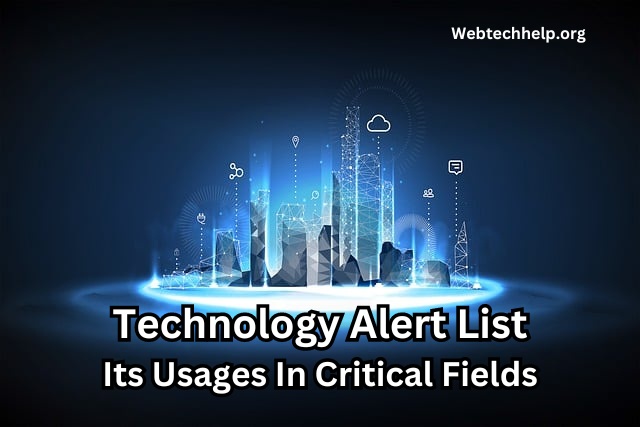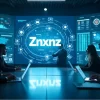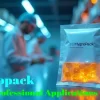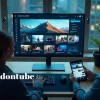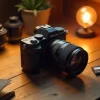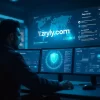Technologies with possible “dual-use” applications are compiled in the Technology Alert List (“TAL”). TAL’s Critical Field List identifies certain industries and technologies as potentially having service uses.
The TAL list covers various fields, including architecture, civil engineering, urban design, and nearly every technique or skill involving chemistry, immunology, and pharmacology. Therefore, this post by Webtechhelp will help to know what other uses are there in the Critical Fields of this Technology Alert List.
Research, Study, Or Employment In The Specified Field
Numerous research scientists, physicians, educators, and engineers working in a range of disciplines may require the Visa Mantis security check due to the extensive breadth of the Critical disciplines list.
According to Department of USA rules mantis clearance is often not required if the technology is in the public domain or if it contains material that would typically be covered in an academic course. Make sure your location is not on the Critical Technology Alert List when you submit your visa application.
If applicable, demonstrate that the data you use is accessible to the general public even though your field of expertise is mentioned.
Residents Of States That Fund Terrorism
All nationalities are subject to export prohibitions on technology and restricted commodities, though. To that end, actions involving nations on the State Sponsors of Terrorism list will be the subject of special investigations by the Technology Alert List (North Korea, Cuba, Syria, Sudan, Iran, Iraq, and Libya are these nations).
In actuality, all candidates from nations designated as state sponsors of terrorism must pass these security tests. If the following categories for their operations in this list of crucial areas apply.
Details Needed For The TAL Check
You will be required to submit comprehensive information about your history, intended activities, research interests, commercial interests, and travel schedule when you are the subject of a Technology Alert List check.
The name, location, phone number, and contact name of the business or organization you wish to visit or work for must be provided. Additionally, you will be asked if you wish to go back to a nation that is thought to support terrorism.
The consular officer can make these selections with the assistance of a comprehensive CV, a list of your publications, and recommendation letters.
Public Space Or Educational Program
In general, Technology Alert List material offered in university courses and the public domain is not restricted to impede the transfer of technology from the United States. Thus, you may find it useful to demonstrate to the consular officer.
That the material of your study or work is publicly available and taught at colleges and universities worldwide. It indicates that there is less reason to think about advanced studies, research, or business activities. When it comes to visas for graduate degrees and entry-level employment in certain occupations.
Technology Alert List On Critical Fields and Technologies
Conventional Munitions
- Warheads and other large-caliber projectiles
- Electronic countermeasures and systems
- New or novel explosives and formulations
- Reactive armor and warhead defeat systems
- Fusing and arming systems.
- Automated explosive detection methods and equipment
Nuclear Technology
- Enrichment of fissile material
- Production of heavy water for moderator material
- Reprocessing irradiated nuclear fuel to recover produced plutonium
- Plutonium and tritium handling
- Power reactors, breeder, and production reactors
- Magnetic confinement fusion
- Fissile or special nuclear materials
- Heavy water production
- Hardening technology
Rocket System And Unmanned Air Vehicle (UAV) Subsystems
- Liquid and solid rocket propulsion systems
- Individual rocket stages or staging/separation mechanism
- Propulsion systems test facilities
- Missile propulsion and systems integration
- Aerospace thermal (such as superalloys) and high-performance structures
Chemical, Biotechnology and Biomedical Engineering
- Aerobiology
- Pharmacology
- Immunology
- Biochemistry
- Virology
- Microbiology
- Flight training
- Bacteriology
- Toxicology
- Neurology
- Mycology
- Toxicology
- Pharmacology
- Immunology
- Study of toxins
- Neurochemistry
- Fermentation technology
- Chemical engineering
- Cross-filtration equipment
- Organo-phosphate chemistry
- Computer modeling of dissemination
Remote Sensing, Imaging And Reconnaissance
- Remote sensing satellites
- Imagery instruments, cameras, optics, and synthetic aperture radar systems
- High-resolution multi-spectral, electro-optical, and radar data/imagery
- Imagery data and information products
- Ground-receiving stations and data/image processing systems
- Remotely-piloted vehicles; and drones
- Unmanned Air Vehicles (UAV)
- Piloted aircraft
- Photogrammetry
Advanced Computer/Microelectronic Technology
- Supercomputing, hybrid computing
- Quantum wells, resonant tunneling
- Speech processing/recognition systems
- Superconducting electron devices
- Neural networks
- Superconductivity
- Acoustic wave devices
- Data fusion
- Frequency synthesizers
- Advance optoelectronics
- Flash discharge type X-ray systems
- Microcomputer-compensated crystal oscillators
Materials Technology
- Advanced metals and alloys
- Ceramic, cermet, organic, and carbon materials
- Liquid and solid lubricant
- Non-composite ceramic materials
- Hot isostatic
- Intermetallic
- Polymeric materials
- Densifications
- Organometals
- Synthetics fluids
- Magnetic metals and superconductive conductors
Sensors and Sensor Technology
- Marine acoustics
- Gravity meters
- Night vision devices, image intensification devices
- Optical sensors
- Magnetometers
- High-speed photographic equipment
Marine Technology
- Submarines and submersibles
- Marine propulsion systems
- Acoustic and non-acoustic detection
- Undersea robots
- Acoustic, wake, radar, and magnetic signature reduction
- Signature recognition
- Magnetohydrodynamics
- Stirling engines and other air-independent propulsion systems
Robotics
- Artificial intelligence
- Computer-controlled machine tools
- Automation
- Pattern recognition technologies
Urban Planning
- Architecture
- Community development
- Civil engineering
- Environmental planning
- Housing
- Landscape architecture
- Geography
- Urban design
- Land use and comprehensive planning
The Bottom Line
The Technology Alert List is crucial because it guarantees that critical technologies are utilized responsibly throughout the globe and contribute to their safety. Moreover, the Technology Alert List guides researchers and companies on how to adhere to global regulations and prevent issues.
By keeping this list up to date, they contribute to everyone’s safety by making sure such technologies don’t wind up in inappropriate places. This list has an impact on how businesses and researchers operate and motivates them to create in a way that benefits everyone.
FAQ’s
The Technology Alert List (TAL) keeps the United States safe. This is a list created by the US government of what it deems to be sensitive.
The TAL is crucial because it guarantees that critical technologies are utilized responsibly throughout the globe and contributes to their safety.
The TAL list covers various fields, including architecture, civil engineering, urban design, and nearly every technique or skill involving chemistry, immunology, and pharmacology.
You will be required to submit comprehensive information about your history, intended activities, research interests, commercial interests, and travel schedule when you are the subject of a TAL check.
In general, TAL material offered in university courses and the public domain is not restricted to impede the transfer of technology from the United States.
